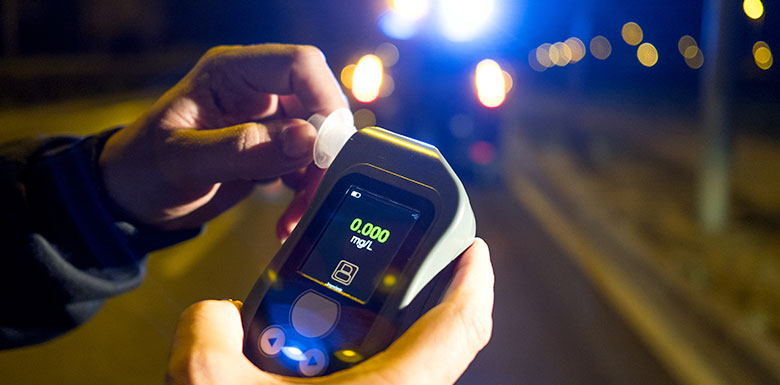If you’re staring down a DWI charge and frantically searching for answers, you’re not alone. Every year, thousands of drivers across the U.S. find themselves in this exact position—facing serious consequences with little knowledge of how DWI defense really works. And that’s exactly why understanding the ins and outs of DWI defense can be your best move forward.
In this guide, we’ll walk you through what happens after a DWI arrest, the most common defense strategies, what to expect in court, and how to avoid the worst-case outcomes. We’re keeping it real with plain language, relatable stories, and critical insight that makes this confusing legal process a whole lot easier to navigate.

What Is DWI Defense and Why Is It So Critical?
DWI defense refers to the legal strategies used to fight charges of Driving While Intoxicated. Whether it’s a first-time offense or a repeat charge, these cases carry real risks—think suspended licenses, jail time, sky-high insurance premiums, and a lasting criminal record.
But here’s the truth: just because you were charged doesn’t mean you’ll be convicted. That’s where a solid DWI defense comes into play. With the right approach, many drivers have had charges reduced, dismissed, or handled in ways that avoided long-term damage.
DWI vs. DUI: Know the Difference
Although often used interchangeably, some states differentiate between DWI (Driving While Intoxicated) and DUI (Driving Under the Influence). In states like Texas, a DWI charge typically refers to alcohol-related impairment, while DUI can sometimes involve drugs or lower levels of alcohol in minors. Regardless of the term, the focus of your DWI defense is to weaken the prosecution’s case, poke holes in the evidence, and protect your future.
The First 24 Hours After a DWI Arrest
The hours after a DWI arrest are confusing, emotional, and high-stakes. Whether you were pulled over after a night out or stopped at a checkpoint, you’re probably wondering what to do next.
Step 1: Don’t Panic
Yes, the charge is serious—but there are defenses. Many people panic and make the mistake of talking too much, pleading guilty without legal advice, or missing deadlines that could’ve helped their case.
Step 2: Document Everything
The more you can remember about the arrest, the better. Write down everything that happened:
- What time were you pulled over?
- What did the officer say or do?
- Did they perform a breath test or field sobriety test?
- Were you read your rights?
These details may seem small, but they often make a big difference when building a strong DWI defense.
Step 3: Hire a DWI Lawyer Immediately
One of the biggest mistakes people make is waiting too long to get legal help. A good DWI defense attorney can challenge test results, question police conduct, and negotiate better outcomes—sometimes before your case even goes to court.
Common DWI Defense Strategies That Actually Work
Every case is different, but certain DWI defense strategies are time-tested and effective when used correctly. Your attorney will help you decide which path makes sense based on the facts of your case.
1. Challenging the Traffic Stop
Police need a valid reason to pull you over. If your lawyer can prove there was no probable cause, any evidence collected afterward (like a breath test or confession) could be tossed out.
2. Faulty Field Sobriety Tests
These tests are highly subjective and often administered under poor conditions. Was it raining? Were you on uneven pavement? Were you wearing high heels or dealing with a medical condition? All of these factors can be used to challenge the accuracy of your results.
3. Breathalyzer Errors
Breath testing machines are not foolproof. They need regular maintenance, calibration, and proper administration. If there’s any sign the machine was malfunctioning—or the officer didn’t use it correctly that could invalidate your results.

4. Rising BAC Defense
Let’s say you had a few drinks, drove home, and got pulled over shortly after. YourBAC could have been rising when you were stopped, meaning you weren’t technically over the limit while driving. In some jurisdictions, this “rising BAC” argument can weaken the prosecution’s case.
5. Medical or Physical Conditions
Certain conditions—like acid reflux, diabetes, or neurological issues can mimic signs of intoxication or interfere with test results. A skilled DWI defense lawyer will look into your medical history to see if it could help your case.
Real-Life Example: “Jason’s Breath Test Nightmare”
Jason, a 34-year-old sales manager, was pulled over in downtown Houston for a broken taillight. The officer said he smelled alcohol and asked Jason to blow into a portable breathalyzer. The result? 0.10%—just over the legal limit.
Jason was arrested and charged, but his lawyer dug into the breathalyzer’s maintenance logs and discovered it hadn’t been calibrated in over two months. That evidence helped get the breath test thrown out, and without it, the prosecution’s case fell apart. Jason’s charges were dismissed.
Stories like Jason’s are exactly why having a smart, strategic DWI defense matters.
Court Process and Timeline for DWI Cases
Understanding how DWI cases move through the system can take some of the fear out of the process. While every case is different, most follow a similar structure.
1. Arraignment
This is your first court appearance, where you officially enter a plea—usually not guilty. It’s also where the court sets bail conditions and future dates. Your DWI defense lawyer should already be on board at this point.
2. Pre-Trial Motions
Your lawyer may file motions to suppress evidence, dismiss charges, or compel the prosecution to release discovery materials. These early legal maneuvers can sometimes end the case before trial.
3. Plea Bargaining
If dismissal isn’t possible, your attorney might negotiate a deal to reduce the charges say, to reckless driving or a non-criminal offense. This can help avoid jail time and preserve your driving privileges.

4. Trial
If no deal is reached, your case goes to trial. The prosecution presents evidence, and your defense attorney rebuts it. The goal is to create enough reasonable doubt that the jury or judge cannot convict.
Penalties You Might Be Facing—and How to Lessen Them
DWI penalties vary widely by state, but they typically include:
- License suspension or revocation
- Fines from $500 to $10,000+
- Jail time (especially for repeat offenses)
- Community service or probation
- Ignition interlock device installation
- Mandatory alcohol education or rehab

But with effective DWI defense, many of these outcomes can be reduced or avoided altogether. For first-time offenders especially, alternatives like deferred adjudication or pre-trial diversion programs may be available.
Repeat Offenders vs. First-Time Offenders
Your criminal history plays a major role in how your case is handled.
First-Time Offender
You may have more flexibility in your DWI defense strategy, including eligibility for:
- Deferred adjudication
- Community supervision (probation)
- Reduced charges through plea bargaining
Courts often show leniency if you take responsibility and show a willingness to change.
Repeat Offender
The stakes get higher. You could be looking at:
- Mandatory jail time
- Long-term license suspension
- Felony charges in some states
That’s why an aggressive, experienced DWI defense lawyer is even more essential if you have prior convictions.
Occupational Licenses and Driving After a DWI
A suspended license can derail your life—how do you get to work, pick up your kids, or even go to court?
Most states, including Texas, allow drivers to apply for an occupational or restricted license during suspension. This type of license lets you drive for essential purposes but comes with strict rules. Your lawyer can guide you through the application and increase your chances of approval.
Expungement: Can You Clear a DWI from Your Record?
Some DWI charges may be expunged or sealed, depending on your state’s laws. Expungement clears the charge from your criminal record, which can help with employment, housing, and more.
Eligibility varies, but factors include:
- Whether it was your first offense
- If you completed all court-ordered programs
- Whether your case was dismissed or reduced
If you qualify, your DWI defense attorney can help file the necessary paperwork and guide you through the process.
Final Tips: How to Build the Strongest DWI Defense
- Act fast. The sooner you get legal representation, the better.
- Stay quiet. Don’t post about your case on social media.
- Be honest with your lawyer. They can’t help you if they don’t know the full truth.
- Follow all court orders. Skipping court or missing deadlines only hurts your case.
Closing Thoughts: DWI Defense Is About More Than Just the Courtroom
DWI defense is about more than showing up to court—it’s about protecting your name, your livelihood, and your future. Whether this is your first offense or a repeat charge, the right defense strategy can have a lasting impact. A conviction doesn’t just mean fines and jail time—it can follow you for years in the form of background checks, limited job opportunities, and the social stigma of having a criminal record. That’s why taking the right steps early on is so critical.
A DWI charge doesn’t automatically mean you’re guilty. With strong legal defense, you have the power to challenge the charges against you. Strategies often include disputing test results, questioning police conduct, or using your medical history to explain symptoms of impairment. Hiring an attorney early gives you access to more options, from negotiation to diversion programs. First-time offenders may be able to avoid harsh penalties altogether, while repeat offenders need a skilled lawyer to fight for the best possible outcome. Whatever your situation, your future is worth protecting—don’t go into it without a plan.


